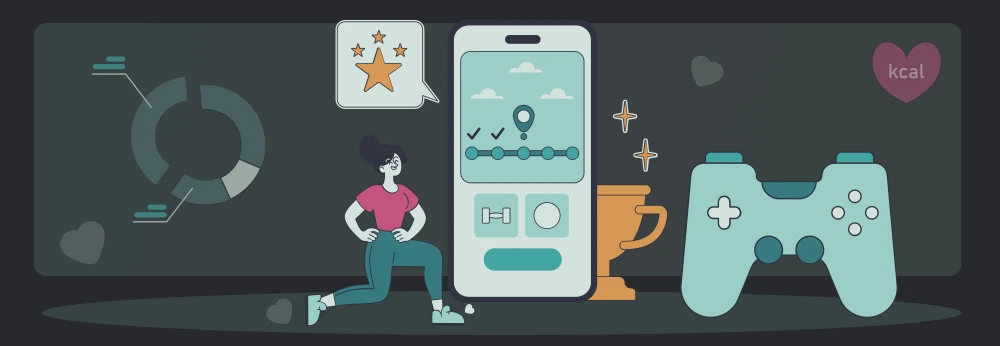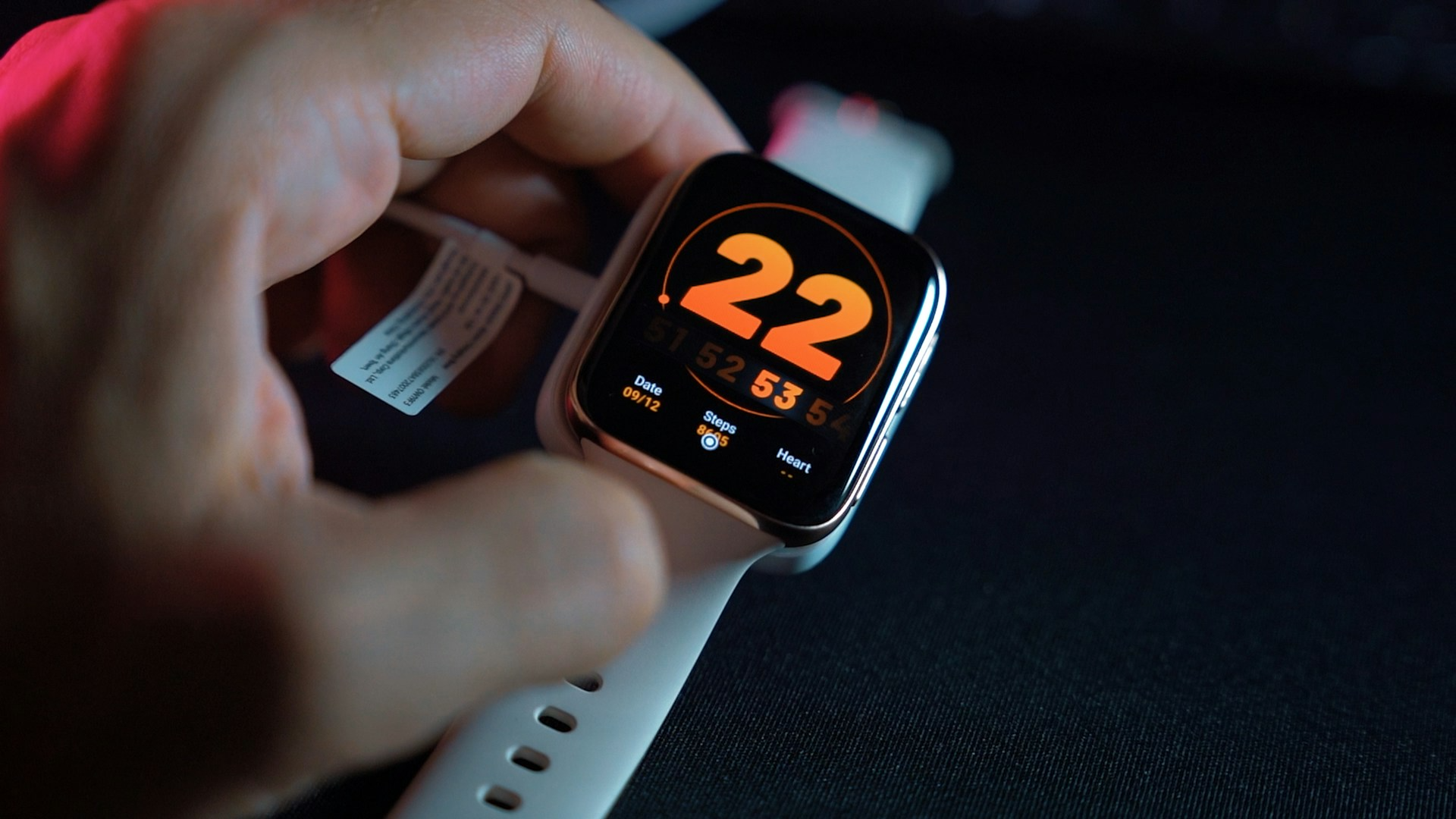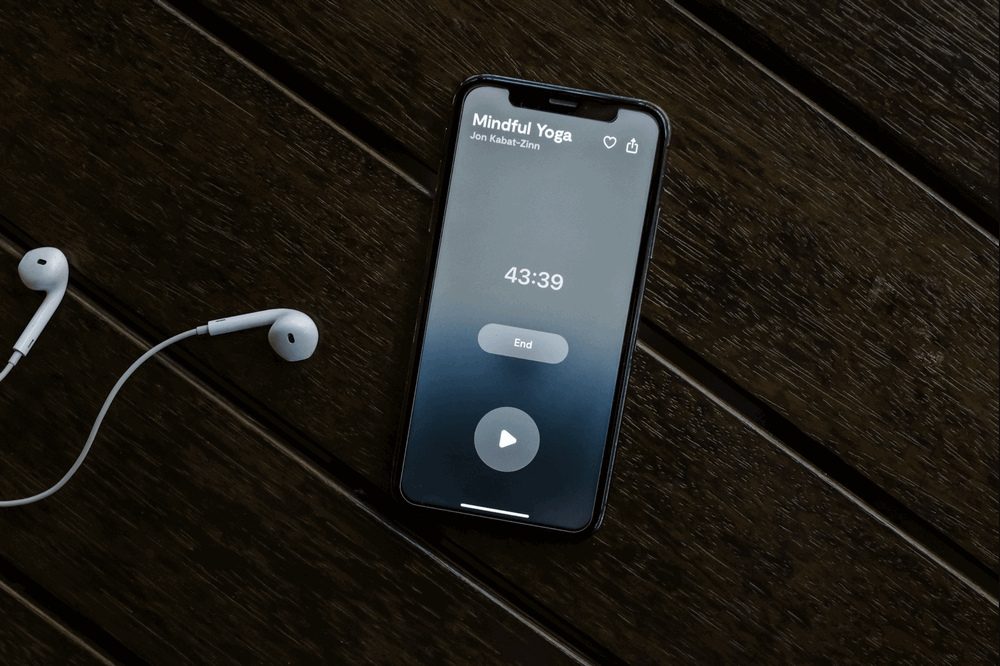.jpg?2026-02-17T14:47:30.411Z)
When Leroy Merlin ran out of hands, InAppStory became the extra ones

Integrating Gamification with Mobile Health Apps: Encouraging Healthy Behaviors
Mark Polskii
Author @ InAppStory
Living a healthy life is a constant battle. We all know we should eat right, exercise regularly, and prioritize sleep, but sticking to these routines can be tough. Motivation wanes, and the allure of instant gratification often wins out. This is where mobile health (mHealth) apps come in.
However, even mHealth apps can struggle to keep users engaged over the long term. Enter gamification - the art of using game-like elements to make non-game activities more engaging. By integrating gamification principles, mHealth apps can transform healthy behaviors into a fun and rewarding experience, ultimately helping us achieve our health goals. This article will explore how gamification can revolutionize mHealth apps, fostering a culture of healthy living and empowering individuals to take control of their well-being.
How Gamification Can Encourage Healthy Behaviors in mHealth Apps
Imagine earning points for every healthy meal you log, unlocking badges for completing exercise challenges, or competing with friends on a leaderboard for most steps taken each day. This isn't a fantasy – it's the reality of gamified mHealth apps. These apps leverage the power of game design to transform mundane health tasks into engaging experiences. Let's delve deeper into the specific gamification elements used in mHealth apps and how they cater to different user motivations:
- Points and Badges: Earning points for completing tasks, like logging water intake or taking medication, provides a sense of accomplishment and immediate feedback. Badges, awarded for reaching milestones or achieving goals, serve as visual markers of progress, boosting self-esteem and encouraging further action.
- Leaderboards and Challenges: Healthy competition can be a powerful motivator. Leaderboards allow users to compare their progress with others, fostering a friendly rivalry and pushing them to strive for better results. Challenges, designed as time-bound goals or contests, add an element of excitement and encourage users to step outside their comfort zones. Consider a weight loss app where users can compete in weekly step challenges or a sleep tracker app where friends vie for the most restful nights. These elements cater to users who thrive on a bit of competition and social connection.
- Rewards and Virtual Goods: Unlocking virtual rewards like customized avatars or new workout routines within the app can be surprisingly motivating. For some users, the ability to "level up" by achieving health goals can be just the incentive they need to stay on track. Imagine a meditation app that unlocks calming nature soundscapes as users progress through their meditation practice. This caters to users who respond well to extrinsic motivators and enjoy a sense of personalization.
- Storytelling and Narrative Arcs: Weaving a narrative into the app's experience can make healthy behavior changes feel more meaningful. Imagine a diabetes management app where users progress through a story, battling virtual villains who represent unhealthy habits.
- Loss Aversion and Gamified Consequences: While negative reinforcement isn't ideal, some users respond well to the concept of "losing" progress. This can be implemented subtly, like losing points for skipping a workout or having a virtual character regress in a story-based app. It's important to use this approach cautiously and ethically, focusing on positive reinforcement whenever possible.
Benefits of Integrating Gamification with mHealth Apps

The power of gamification in mHealth apps extends far beyond simply making healthy habits more engaging. Research has shown a clear link between gamified features and positive health outcomes. Studies have found that users of gamified mHealth apps are more likely to do the following.
Increase Physical Activity
Gamification elements like step challenges and activity trackers with leaderboards can significantly boost physical activity levels. Users become motivated to reach daily step goals, compete with friends, and "win" virtual rewards, leading to a more active lifestyle.
Improve Dietary Habits
Tracking food intake and logging meals become less of a chore and more of a game with points awarded for healthy choices. Users can compete with friends for the most balanced meals or unlock badges for reaching daily fruit and vegetable goals. This playful approach can lead to lasting changes in dietary habits.
Enhance Medication Adherence
Gamification can be a powerful tool for managing chronic conditions. Reminder systems with points or badges for taking medications on time can significantly improve adherence. Imagine an app that unlocks educational content or fun quizzes for users who consistently take their medication, turning a potentially mundane task into a learning experience.
Boost Overall User Engagement
Gamification makes mHealth apps more fun and engaging, leading to increased user retention. Users are more likely to stick with an app they find enjoyable and rewarding, ultimately maximizing the app's effectiveness in promoting healthy behaviors.
Improve User Satisfaction
The sense of accomplishment and progress fostered by gamification elements leads to higher user satisfaction with mHealth apps. This, in turn, encourages continued use and promotes long-term behavioral change.
Increase Self-Efficacy
As users successfully complete challenges and achieve goals within the app, their confidence in their ability to manage their health (self-efficacy) grows. This empowers them to take charge of their well-being and make healthier choices.
The Future of Gamified mHealth Apps

The gamification landscape in mHealth is constantly evolving, with exciting trends emerging that promise to further revolutionize how we approach health and wellness.
- Immersive Technologies: Virtual reality (VR) and augmented reality (AR) have the potential to create even more engaging experiences within mHealth apps. Imagine a VR yoga session that transports you to a calming mountaintop or an AR app that overlays healthy recipe instructions directly onto your kitchen counter. These immersive technologies can make healthy activities more interactive and enjoyable.
- Artificial Intelligence (AI): AI can personalize the gamification experience even further. AI-powered mHealth apps can adapt challenges and rewards based on individual user data and progress. This tailored approach can maximize motivation and keep users engaged over the long term.
- Gamified Communities: The social aspect of gamification is another exciting area of development. Imagine a network of mHealth app users who can participate in team challenges, support each other's goals, and celebrate collective achievements. This sense of community can foster a strong sense of accountability and shared purpose, further propelling healthy behavior change.
Gamified mHealth apps have the potential to become powerful tools for promoting preventative healthcare, managing chronic conditions, and empowering individuals to take control of their well-being. The future of health is undoubtedly more engaging and interactive, thanks to the innovative world of gamification.
Conclusion
Incorporating gamification principles into mHealth apps has proven to be a game-changer (pun intended) in the realm of health promotion. By transforming mundane health tasks into engaging and rewarding experiences, gamification motivates users to embrace healthy behaviors and fosters long-term adherence. From increased physical activity and improved dietary habits to better medication adherence and heightened user satisfaction, the benefits of gamified mHealth apps are undeniable.
As technology continues to evolve, the future of gamified mHealth holds immense promise. With the integration of immersive technologies like VR and AR, personalized experiences powered by AI, and the fostering of supportive online communities, these apps have the potential to revolutionize preventative healthcare and empower individuals to become active participants in their well-being. Gamification is not just making healthy habits more fun, it's paving the way for a more proactive and engaging approach to health management for everyone.

